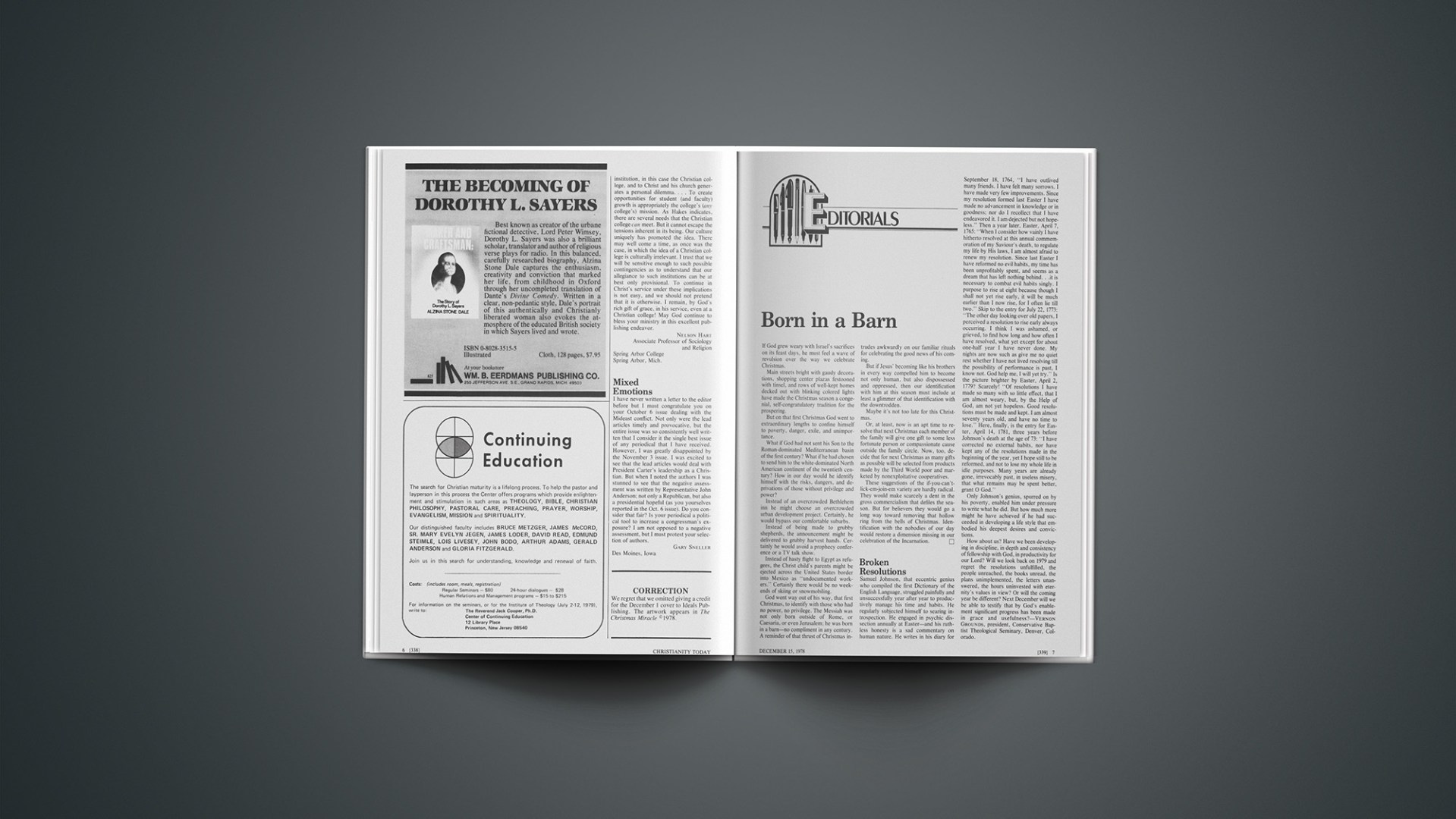If God grew weary with Israel’s sacrifices on its feast days, he must feel a wave of revulsion over the way we celebrate Christmas.
Main streets bright with gaudy decorations, shopping center plazas festooned with tinsel, and rows of well-kept homes decked out with blinking colored lights have made the Christmas season a congenial, self-congratulatory tradition for the prospering.
But on that first Christmas God went to extraordinary lengths to confine himself to poverty, danger, exile, and unimportance.
What if God had not sent his Son to the Roman-dominated Mediterranean basin of the first century? What if he had chosen to send him to the white-dominated North American continent of the twentieth century? How in our day would he identify himself with the risks, dangers, and deprivations of those without privilege and power?
Instead of an overcrowded Bethlehem inn he might choose an overcrowded urban development project. Certainly, he would bypass our comfortable suburbs.
Instead of being made to grubby shepherds, the announcement might be delivered to grubby harvest hands. Certainly he would avoid a prophecy conference or a TV talk show.
Instead of hasty flight to Egypt as refugees, the Christ child’s parents might be ejected across the United States border into Mexico as “undocumented workers.” Certainly there would be no weekends of skiing or snowmobiling.
God went way out of his way, that first Christmas, to identify with those who had no power, no privilege. The Messiah was not only born outside of Rome, or Caesaria, or even Jerusalem; he was born in a barn—no compliment in any century. A reminder of that thrust of Christmas intrudes awkwardly on our familiar rituals for celebrating the good news of his coming.
But if Jesus’ becoming like his brothers in every way compelled him to become not only human, but also dispossessed and oppressed, then our identification with him at this season must include at least a glimmer of that identification with the downtrodden.
Maybe it’s not too late for this Christmas.
Or, at least, now is an apt time to resolve that next Christmas each member of the family will give one gift to some less fortunate person or compassionate cause outside the family circle. Now, too, decide that for next Christmas as many gifts as possible will be selected from products made by the Third World poor and marketed by nonexploitative cooperatives.
These suggestions of the if-you-can’t-lick-em-join-em variety are hardly radical. They would make scarcely a dent in the gross commercialism that defiles the season. But for believers they would go a long way toward removing that hollow ring from the bells of Christmas. Identification with the nobodies of our day would restore a dimension missing in our celebration of the Incarnation.










